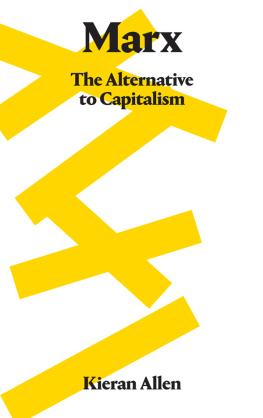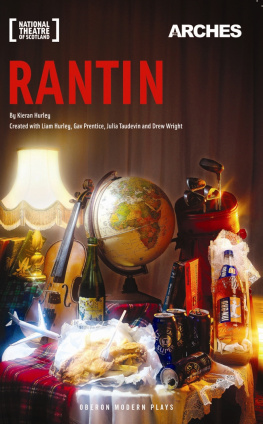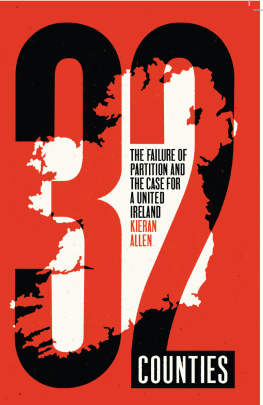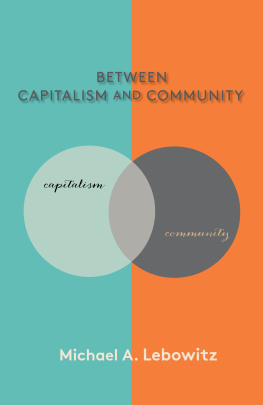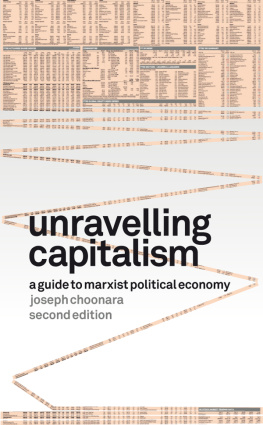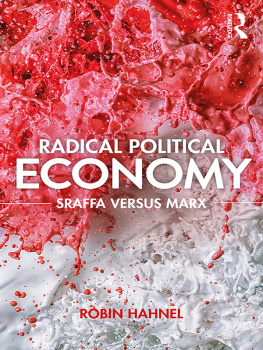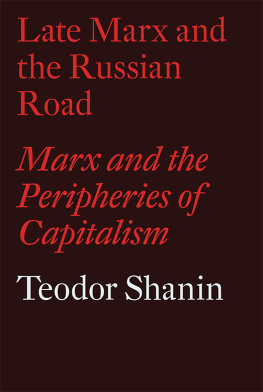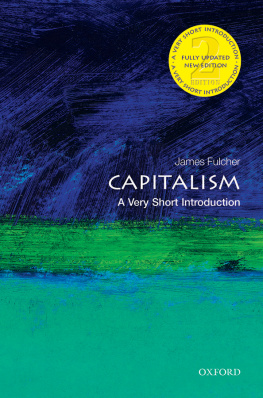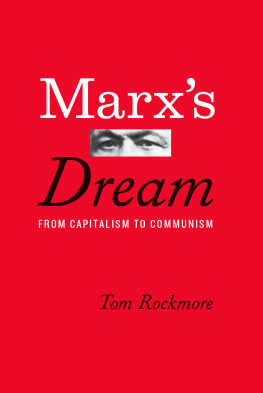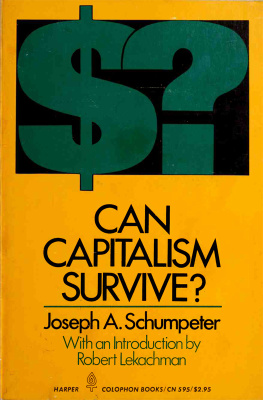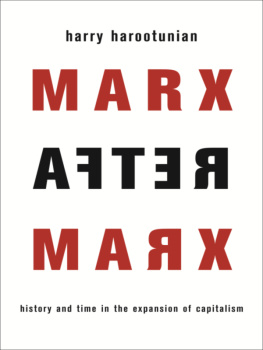Kieran Allen - Marx : the alternative to capitalism
Here you can read online Kieran Allen - Marx : the alternative to capitalism full text of the book (entire story) in english for free. Download pdf and epub, get meaning, cover and reviews about this ebook. year: 2017, genre: Politics. Description of the work, (preface) as well as reviews are available. Best literature library LitArk.com created for fans of good reading and offers a wide selection of genres:
Romance novel
Science fiction
Adventure
Detective
Science
History
Home and family
Prose
Art
Politics
Computer
Non-fiction
Religion
Business
Children
Humor
Choose a favorite category and find really read worthwhile books. Enjoy immersion in the world of imagination, feel the emotions of the characters or learn something new for yourself, make an fascinating discovery.
- Book:Marx : the alternative to capitalism
- Author:
- Genre:
- Year:2017
- Rating:4 / 5
- Favourites:Add to favourites
- Your mark:
- 80
- 1
- 2
- 3
- 4
- 5
Marx : the alternative to capitalism: summary, description and annotation
We offer to read an annotation, description, summary or preface (depends on what the author of the book "Marx : the alternative to capitalism" wrote himself). If you haven't found the necessary information about the book — write in the comments, we will try to find it.
Marx : the alternative to capitalism — read online for free the complete book (whole text) full work
Below is the text of the book, divided by pages. System saving the place of the last page read, allows you to conveniently read the book "Marx : the alternative to capitalism" online for free, without having to search again every time where you left off. Put a bookmark, and you can go to the page where you finished reading at any time.
Font size:
Interval:
Bookmark:
Also available:
Durkheim
A Critical Introduction
Kieran Allen and Brian OBoyle
Weber
Sociologist of Empire
Kieran Allen

First published 2011 as Marx and the Alternative to Capitalism
by Pluto Press
345 Archway Road, London N6 5AA
This edition published 2017
www.plutobooks.com
Copyright Kieran Allen 2011, 2017
The right of Kieran Allen to be identified as the authors of this work has been asserted by him in accordance with the Copyright, Designs and Patents Act 1988.
British Library Cataloguing in Publication Data
A catalogue record for this book is available from the British Library
ISBN 978 0 7453 3742 5 Paperback
ISBN 978 1 7868 0201 9 PDF eBook
ISBN 978 1 7868 0203 3 Kindle eBook
ISBN 978 1 7868 0202 6 EPUB eBook
This book is printed on paper suitable for recycling and made from fully managed and sustained forest sources. Logging, pulping and manufacturing processes are expected to conform to the environmental standards of the country of origin.
Typeset by Stanford DTP Services, Northampton, England
Simultaneously printed in the United Kingdom and United States of America
We live in an era of tremendous inequality with 71 per cent of the worlds population owning less than 3 per cent of the global wealth. Yet despite the evident failures of capitalism, there is a brazen flaunting of privilege in the eyes of the poor. Sometimes this is justified by reference to market forces which, apparently, obey a cold logic that takes no account of human sentiment. On other occasions, plain duplicity is used. Before his election, Donald Trump, talked about draining the swamp yet afterwards he stuffed his cabinet with billionaires whose combined wealth is greater than many countries.
If sociology has any value, it must surely inquire into causes of inequality. It should not descend into such a level of abstraction that it does not connect with the world we live in. Nor should it adopt a ponderous tone by using academic jargon to show how clever its writers are. We need explanations for why a society which has the capacity to eradicate famine and poverty continues to create both.
This short book provides an introduction to the writings of Karl Marx. Its aim is to demonstrate the relevance of his theories to the modern world. It is addressed to students and workers who are critical of our current social relations and who wish to understand their dynamics in order to change them.
In Marxs time, there were a number of writers who spent considerable energy in describing a future utopian society. Marx thought that this neglected the question of agencyof who or how such a better society might be brought about. His writings on the specific ways an alternative society might be organised were therefore more limited. However, throughout his writings there is an implied alternative based on democratic participation. His notion of both economic and political democracy was on a scale barely imaginable to those who think that Western democracy is the highpoint of human achievement. This alternative had nothing to do with the tyrannies that took the name of communism. It was based on the possibility that human beings could collectively control the productive forces in order to enhance their own freedom.
This book is written from an agreement with that perspective.
This book has benefited considerably from comments, discussion and criticism that were provided to me.
I would like to thank Marnie Holborow, John Molyneaux, Margaret ORegan, James OToole, Theresa Urbainczyk Gabriela Weberova, and Ruth Willats.
I would also like to thank Kulwant Gill for her constant support, encouragement and questioning.
Finally, this book is dedicated to my mother, Maura Allen, with whom I learnt to argue politics. I suspect she would not agree with much of the books contents but it was her astute mind that forced me to clarify my ideas many years ago.
As long as there is class division and social inequality, Karl Marx will be the most relevant social thinker of the twenty-first century. Consider the opulence of Dubai. Originally a tiny port for pearl fishermen, it has become a fantasy playground for the wealthy. by creating private inlets for the super-wealthy. Another construction project, The World, was designed as a vast concrete map of the planet where individual countries could be owned by consortia of property speculators. There is also an indoor ski resort with real snow in the middle of the desert and a special Tiger Woods Golf Course which consumes over four million gallons of water every day. The water supply for these projects came from desalination plants powered by burning gas. The demand was so high that the electrical grid, which also relied on gas, began to falter and Dubai turned to its US ally for help in building a nuclear power plant. At 145 million gallons of water a day, the rich of Dubai were so opulent that they needed a nuclear power plant just to meet their needs.
Dubai is just one extreme symbol of an uneven, class-divided world. According to UNICEF, about 26,000 children die each day in some of the poorest villages on earth.
Marx was not the first person to write of class conflict but he was unique in suggesting that it was a driving force for how societies change. His vision directs our attention constantly to social class and this has become even more important in a world of soothing images, which invite escapist fantasies. The magazine sections of many Sunday newspapers run features on Dubais Burj Khalifa, the worlds largest tower block. The reader is invited to ogle at a hotel interior decorated by Georgio Armani or the Atmosphere restaurant located on the 122nd floor and to imagine staying in one of its bedrooms as a VIP. By contrast, the Indian peasant woman gathering cow dung by hand is rendered invisible. The names, images and short biographies of children whose lives are struck short by diarrhoea are erased from existence by a culture in pursuit of the latest tittle-tattle on celebrities.
More than 150 years ago, Marx wrote that:
It is true that labour produces wonderful things for the rich but for the worker it produces privation. It produces palaces but for the worker, hovels. It produces beauty but for the worker, deformity. It replaces labour by machines, but it throws one section of the workers back into barbarous types of labour and it turns the other section into a machine. It produces intelligence but for the worker, stupidity, cretinism.
His words cut across a comforting escapism to ask: who were the builders of playgrounds like Dubai? Under what conditions did they work? How was the wealth created to fund these fantasy constructions? Answering Marxs questions means discovering, for example, that the opulence of Dubai rests on work undertaken by 600,000 workers who were recruited from Pakistan, India, Sri Lanka and Bangladesh. Often crammed seven to a room, in facilities located near open sewers, they live in labour camps out of sight of the wealthy. Despite claims about the new freedoms brought on by globalisation, their passports are often withheld to force them to work in blistering heat of over 100 degrees Fahrenheit. However, as Marx predicted, these workers are not just victims, but also rebels and fighters. Despite threats of deportation, they have marched, rioted and gone on strike against their inhuman conditions in Dubai. Siding with, and celebrating, that resistance is also part of the vision of Marx.
Font size:
Interval:
Bookmark:
Similar books «Marx : the alternative to capitalism»
Look at similar books to Marx : the alternative to capitalism. We have selected literature similar in name and meaning in the hope of providing readers with more options to find new, interesting, not yet read works.
Discussion, reviews of the book Marx : the alternative to capitalism and just readers' own opinions. Leave your comments, write what you think about the work, its meaning or the main characters. Specify what exactly you liked and what you didn't like, and why you think so.

